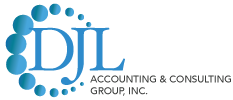Navigating Student Loans: A Medical Student's Guide
Embarking on the path to becoming a physician is a fulfilling yet challenging journey. At DJL Accounting & Consulting, Inc. we completely understand the weight that student loans can place on this path. For years, our firm has supported many residents and new physicians, creating lasting relationships that go way beyond mere tax preparation and bookkeeping. We specialize in navigating the complexities of loans, empowering you to focus on your career, personal, and family goals. Managing student loans strategically isn't just about numbers—it's about crafting a secure financial foundation for your future. Our goal is not just to be your tax preparer, but a trusted consultant across all facets of your career.
Let's delve into a general guide on managing student loans at each stage of your academic and professional development.
Undergraduate School: Establishing Financial Foundations
Your financial journey commences during your undergraduate studies, where decisions can significantly impact your future debt.
Choosing an affordable institution, such as a state university or community college, is incredibly important. Pursue scholarships vigorously, as they can often cover full tuition or more. Consider living at home to reduce room and board costs which is a significant expense. Last, use summer breaks to work and save, minimizing the need for loans.
When it comes to loans, prioritize Federal Loans over Private Loans. Federal Loans offer lower interest rates and valuable borrower protections. Private Loans should be a last resort, with Grad PLUS loans considered before turning to private lenders.
Medical School: Financial Planning for Success
Transitioning to medical school introduces new financial challenges.
Here's how to navigate this phase wisely:
- Select a medical school that balances quality education with affordability.
- Look for institutions offering free tuition programs or significant financial aid opportunities.
- In terms of financial strategies, embrace a frugal lifestyle with cost-saving measures such as shared housing and explore potential family support options to alleviate financial strain.
- Continue actively seeking medical student scholarships and delay taking out loans until necessary to minimize accrued interest.
- Enrolling in an Income-Driven Repayment (IDR) program early can help manage payments based on income during medical training.
Residency: Refining Your Financial Plan
Entering residency marks a pivotal stage in your career and finances. Here's how to manage student loans during this phase:
Private student loans have various repayment options, each with its own implications. First is immediate repayment, payments begin right after loan disbursement, even during school. It's the cheapest option, allowing you to chip away at both principal and interest from day one. Next is Interest-Only, here you pay only the interest while in school. The loan balance remains the same, but you stay current with interest payments, avoiding a larger balance after graduation. Partial payment is the next option, this option involves making a low fixed payment during school. While it results in a larger loan balance at graduation, it helps in gradually reducing the overall amount owed. Full Deferment is another option, choosing full deferment means no payments are due during school, including a 6-month grace period post-graduation. However, it's the most expensive option in terms of accruing interest over time.
Consider refinancing private loans post-medical school to secure lower interest rates. Look for lenders offering "resident programs" with reduced payments tailored for those in residency.
For federal student loan management during residency, evaluate Income-Driven Repayment (IDR) plans. These plans offer manageable payments based on income and family size. Compare the standard 10-year plan with IDR options suited to your financial circumstances.
During residency and fellowship, the temptation to defer or forbear student loans is common among medical professionals. Deferment, granted in six-month increments, halts payments, with subsidized loans avoiding interest accrual. However, unsubsidized loans accrue and capitalize interest. Forbearance, a 12-month payment pause, accrues interest on all loans. General forbearance is at the lender's discretion, often for financial difficulties, while mandatory forbearance includes situations like high monthly payments exceeding 20% of gross income during residency or AmeriCorps service. Both options should be carefully considered, as they may extend repayment periods and increase overall costs. It's advisable to discuss these choices with a loan professional to find the best strategy for you.
How Much Should You Take Out?
When it comes to student loans, only borrow what you need. It can be tempting to take out extra loans to cover living expenses, but this can lead to unnecessary debt. Financial aid offices might suggest additional loans, but it's crucial to assess your actual living expenses and borrow accordingly. Some individuals even borrow more than necessary, using loans for a lifestyle beyond their means. To avoid this, calculate your living expenses and borrow the minimum needed to cover them.
See a Student Loan Advisor!
The decisions you make regarding your student loans can have significant financial implications, potentially worth tens or even hundreds of thousands of dollars over time. With federal repayment programs constantly changing and becoming more complex, seeking guidance is highly advisable. We recommend scheduling a meeting with a student loan advisor. These professionals can help you navigate the intricacies of loan management, provide insights on repayment options, and offer personalized advice tailored to your financial situation.
Conclusion: Building Financial Stability
Managing student loans strategically is a crucial component of your journey to becoming a physician. By making informed decisions at each stage, from undergraduate studies to residency, you can minimize your debt burden and pave the way for a more secure financial future. Prioritizing federal loans, actively seeking scholarships, living frugally, and considering the financial implications of specialty choices are all steps toward financial stability. Remember, the road to becoming a doctor is filled with challenges, but with careful financial planning, you can navigate this aspect with confidence, allowing you to focus on your goals and aspirations.
For more information check out this article from White Coat Investor: https://www.whitecoatinvestor.com/ultimate-guide-to-student-loan-debt-management-for-doctors/
- Debra Rodway's blog
- Log in to post comments



